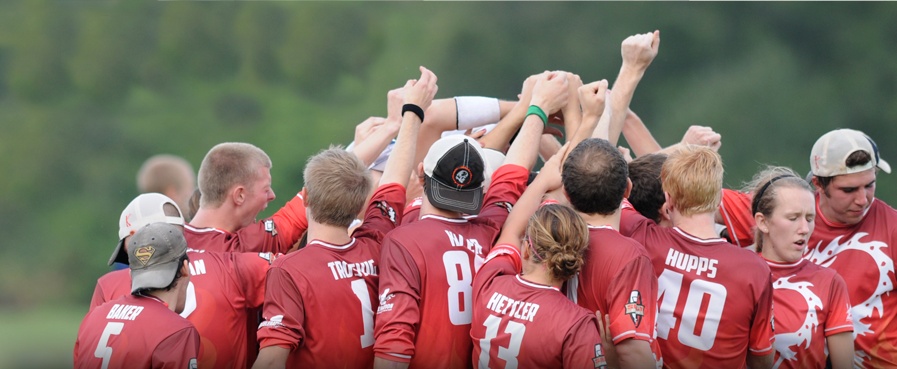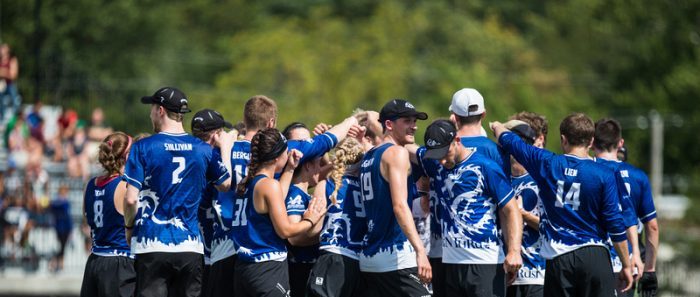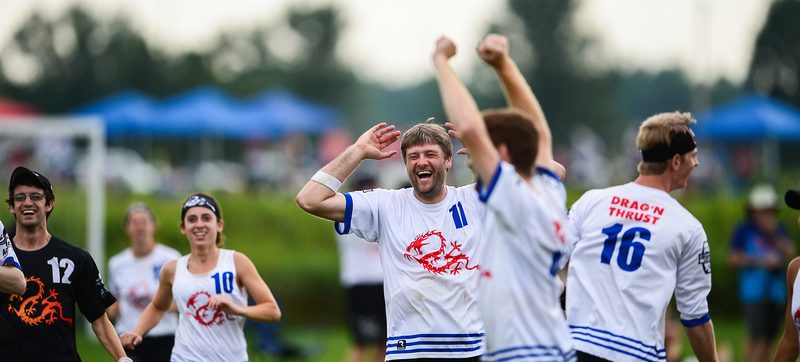By Austin Lien
I’d had the idea to write about something like this several months ago, so I had to laugh when Dave Klink’s article came out not that long ago with such a similar theme. Fortunately, Dave chose to write about a topic more closely related to what makes Ultimate unique as a sport – the player’s side of self-officiation.
As it exists currently, Ultimate isn’t much more than a hobby for almost anyone. Even such, it’s a consuming one. When I find myself with a lack of ability to play, such as at the end of the USAU Club season every year, I try to fill the void with things that will keep me thinking about the game. Viewing game film is the solution ninety-nine percent of the time. This particular day, I felt like binge-watching TED Talks. I came across one speech that got the wheels in my head turning, and sent me off on a tangent from perhaps the intended focus. Kathryn Schulz’s “On Being Wrong” raises a few interesting points about human perception. I suggest you watch it if you get a chance. I’m not going to try to summarize it, because I’ll only refer to it briefly. She also authored a book, Being Wrong, which is probably good, but I totally haven’t read it.
Anyway, why “Being Wrong,” Austin? I hate being wrong almost as much as I hate admitting that I’m wrong. It might be my least favorite thing. It’s a character flaw of mine, and I’m constantly trying to be better about it. Ultimate is a sport where possession is incredibly important. It is nearly always the case that the team which makes the fewest mistakes will win the game. I grew up playing baseball, so this concept was intimately familiar to me right from the get-go. Schulz says that due to the way most of us are brought up, “We learn that the way to succeed is never to make any mistakes.” Everyone would love to get 100% on a test in school, play through a tournament with zero turnovers, or write a thousand lines of code and have it compile on the first try. (Ok, maybe not that last one – that would be really spooky). The unfortunate thing, of course, is that this is more-or-less impossible to do as the difficulty of the task increases. If you are pushing yourself to grow and improve as a player, you will make mistakes. There’s no way around that.
Like Dave mentions in his article, our perception is not a perfect interpretation of reality. Our brains are constantly comparing what we’re currently seeing to past data, and extrapolating that forward to make a judgment on what hasn’t happened yet. We do this all instantaneously and unknowingly, and accept it as reality. That’s pretty incredible. “The miracle of your mind is not that it can see the world as it is. It’s that you can see the world as it isn’t” (Schulz).
Knowing all of this, I believe we as players should come into every game mentally prepared to admit we will be wrong at some point, and accept the mistakes we will probably make. If you’re willing to deal with this concept before the game even starts, you don’t have to deal with it while you’re trying to perform at the peak of your ability. The caveat here is that you’re also not allowed to forget about the mistakes you do make, or the same errors are likely to occur in your next game. Confidence (read: swagger) is paramount to athletes as performers, but not at the cost of error-blindness. Find a balance between the two that will allow you to play your best, while also logging away information to learn from later. Obviously, Finals at Club Nationals is not the ideal time or place to be learning lessons, but boy does it make those “wrongs” memorable.




